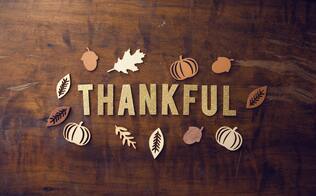 Goals and Resolutions Hello all and happy holidays! So now that Christmas is behind us that means New Years is days away. As we close the holiday season and the pies, cookies, and holiday treats begin to disappear we may be thinking about resolutions or goals. While I myself do not typically do new years resolutions, I do and am a huge advocate of goals. So if you’re thinking about goals in the form of a resolution or simply are thinking about goals in terms of the next month to six months there are a few things I would recommend. This is not an article about SMART goals. That would be an entire article all unto itself. This article is about truly understanding what you want to achieve, and how to develop the mindset to make progress in achieving it. What Is The Underlying Desire Of Your Goal To get to the underlying desire we must first start with the outcome you want to achieve. Step 1- What is the outcome you want to achieve? For example the outcome might be to lose 50 pounds. Once you've identified your desired outcome it's time to move on to step 2. Step 2- Why did you choose that outcome. So if you said you wanted to lose 50lbs why did you pick 50 pounds specifically? What made this outcome important? For example did you pick 50lbs because that's what you weighed in high school, or perhaps that's what you think you should weigh to be healthy, or perhaps that's how much a doctor told you to lose. Whatever the reason, jot down why you chose that outcome. Once you've identified what made you chose that outcome move on to step 3. Step3- Identify the underlying desire.So let's say you were 50 pounds lighter in high school and you FELT you were at your healthiest/prettiest. It would make sense to use that period of your life as the template for your outcome goal. What's important here is to understand what the FEELING is you're hoping to achieve as it's this feeling that is the underlying desire. No one cares about the number of pounds they lost. They care about looking good in their jeans, they care about feeling healthy and pain free, they care about being able to chase after their children/grandchildren, they care about feeling handsome/pretty, about feeling wanted, or desired. Why Identifying The Desired Feeling Is Important Perhaps you feel if you lose that 50lbs you'll get back to what you weighed in high school when you felt your prettiest or healthiest, so you associate the 50lbs with feeling pretty/healthy. However, the truth is if you lose that 50lbs the wrong way, you won't look or feel pretty or healthy. In high school you were probably quite active without even realizing it, as well as probably a good bit younger. This is important because physical activity and age play a role of how our bodies are shaped, where we carry weight and how we carry the weight. Losing weight improperly can lead to a washed out, deflated or saggy look. So while you may have lost the weight the goal of feeling healthy or pretty won't be achieved. On the other hand if you change your lifestyle, you build muscle in the right places, lose fat in the right places perhaps you only lose 30lbs but you may look and feel even better than you did in highschool. In this case the goal of feeling pretty/healthy would be achieved despite the outcome not being achieved. So whatever your goal is, ask yourself what is the underlying FEELING you’re looking to achieve. By understanding this it will help you and/or your trainer better focus efforts in your fitness programming as well as to make the right lifestyle changes that will feed and nurture this desire on your way to fully achieving it. Part 2- Mindset Now that you’ve given some thought to your underlying desire, this brings us to my second point, which is mindset. Without identifying your underlying desire you will have a hard time in developing the right mindset. Mindset isn’t necessarily something that you can just develop in a snap. It is often something we understand intellectually but that takes more time to feel it emotionally. What I mean by emotionally is that you can understand something to be true intellectually and yet it just doesn't feel real. For example, we all learned that smoking increases the likelihood of heart disease but for most people it just doesn't seem real. Then one day we have a heart attack, or someone we love has a heart attack attributed to smoking... now all of a sudden it feels real, and that realness makes quitting an urgent matter. However, we do not need to wait for something bad to happen to develop the right mindset towards health. Instead we can start by identifying what you believe to be true and why it is important. For example one health and fitness mindset might be that "in order to age like fine wine, look good in my cloths and live pain free I have to commit to this is as a lifelong change because I know that mindful nutrition and regular exercise are my best chance to achieve this." Your statement of importance can be different but it has to be something you believe to be true and that matters to you. This is why knowing the underlying desire is important. If you want to feel pretty and healthy in the future, you have to identify your desire and recognize what you have to do to get there. Once you have the targeted mindset you won't likely be emotionally committed because the threat of negative consequences may not feel as real as the pain it takes to actually exercise. However, we can develop this urgency and real feeling over time by reminding ourselves daily how important it is. We all know that person who tells a lie, and they tell it so often they begin to believe it. This is no different, except it isn’t a lie. It’s a truth that doesn’t seem real because we’re young and healthy now and it’s hard to believe one day we’ll be old and busted (pardon the expression). So what I'm saying here is when developing your mindset, understand that intellectually knowing a lifestyle change is an important step, but in order to make the change you’ll have to feel it on a deeper level, which can come from how we talk to ourselves. Over time you will see others who did not take care of their health, and you'll witness the consequences and it'll further confirm you were doing the right things all along. So below are a few examples of some self talk to help you develop your desired mindset.
The more you improve the narrative and how you talk to yourself the more you'll begin to believe it. It is likely this is something that will happen in pieces and improve over time. For example it is not uncommon for people to begin to exercise before they begin changing their nutritional habits. Also notice that the statements and self talk above are in the affirmative. There is no shaming done, as beating yourself up over and over again typically promotes giving up. If you find you have a very low confidence level, are unable to use positive self talk or can't stop shaming yourself, consult with a therapist. It could save you weeks or months of frustration and help you get over that hump, so you can be on your way to achieving your goals. Conclusion As you may have noticed the change mindset is not about perfection. It isn’t about making mistakes or not making mistakes. It is about the conversation you have with yourself and asking yourself WHAT ARE YOU STRONG ENOUGH TO DO NOW. If you just can’t get motivated to workout, ask yourself what are you strong enough to do now? Are you strong enough to do just one set of an exercise or walk around the block? If that’s all you have in you, and you put that effort in, you will always confirm the change mindset and the actual change will inevitably follow.
0 Comments
 If I’ve worked with you in a face-to-face setting, I’ve probably told you this story, but it’s worth repeating. So about 5 years ago I was hosting Thanksgiving. We had everything you’d expect of a Thanksgiving dinner. There was turkey, mashed potatoes, gravy, stuffing, pie and so on. Well one person in my family looked at the pie and said, “Well if I have that slice of pie, I’ll need to take a walk around the block”. Without thinking about it, I looked at the slice and said, well that slice probably has 600 calories in it, and the average man burns about 100 calories per mile, so you’d probably have to walk around the block like 30 times. I could see the look on their face… I totally just ruined that slice of pie. That was not my intention, and I apologized… it is sort of an occupational hazard. However, here is the point. We Underestimate How Much We Eat and Overestimate How Much We Burn The point is, unless you’re trained in nutrition you will almost always underestimate the number of calories you’ve eaten and almost always overestimate the calories you burned. We can consume calories exponentially faster than we can burn them. The other problem is here in the United States we largely suffer from food dysmorphia, meaning from a visual standpoint we have an inaccurate perception of how much food we should have. For example, a portion of mashed potatoes should be about as much as you can fit in a cupped hand but most of us will have a portion more like the size of our fist. A serving of turkey should be the size and thickness of our palm. A serving of gravy the size of our thumb, and our vegetables the size of our fist. Strategies For the Holidays Of course, it is not lost on me that Thanksgiving is a holiday where we historically overeat. In fact, we typically overeat at every holiday. What I would say to that is come up with a couple strategies that allow you the enjoyment of taste without going overboard. For example, you can try to eat lighter throughout the day to make up for what you’ll be consuming later. You can also eat something before you go to the holiday event, so you aren't so hungry that you're compelled to over-eat. Another strategy is to eat one serving, have 16 ounces of water, wait 10 minutes then if you're still hungry have another serving. If you can make it through the holidays without gaining weight that’s a victory and I’ll tell you why. Why Maintaining Your Weight During the Holiday Season is a Victory Weight gain and obesity have long been a multi-faceted issue but holidays play a significant role. It is estimated that people gain 1-2 pounds per year from early adulthood through middle age. So if you’re 150 pounds at 20 years old you’ll likely weight 170 by 30 years old, 190 by 40, 200 by 50. These are only averages, and I use them to illustrate the following point. It stands to reason that this 1-2 pounds of weight gain likely happen largely over the holidays and holiday season. It might not be Thanksgiving alone. It may be the combination of left over candy from trick or treat, Christmas cookies, baked pies during fall, apple cider etc. However, if you can keep your weight level through the holidays it’ll go a long way to maintaining your weight over the long term. Examine How You Think and Feel About Strategically Restricting Your Food While strategies go a long way, it should first be noted that strategies only work if you use them. Often, we side-step these strategies, or give ourselves “exeptions” because we don’t want to deprive ourselves. So, if you feel like you’re depriving yourself, you may want to ask yourself why you feel that way, and what might a good compromise look like? It's all about priorities. If you really want the desert perhaps go without the mashed potatoes or some other dish. If we are a slave to our desires we can never truly be free. Let me close with this. I’ve never heard of anyone on their death bed saying… if they had to do it again, they’d eat more pie. Typically, what people wish for at the end is more time with loved ones, or having traveled more, or having mended broken relationships. Therefore If you want more time with those you love, and you want it to be quality pain-free time, it is absolutely crucial you take charge of your health and fitness. There will always be another pie… but you may not always have another holiday to spend with those you love, and isn’t time with those we love the very foundation of what holidays are all about?  Ok so maybe you’re a former athlete or prior military, or perhaps you just miss those glory days when you felt good and you felt like you looked good. Now you’re looking in the mirror and saying “how did I get here?”, “how did I let my health get to this point?” Maybe it has nothing to do with what you look like, but you found yourself huffing and puffing walking up the stair and you thought “I used to be an athlete now I’m struggling with steps”. If you’ve experienced any of that you’re not alone. It’s easy to lose track of your health and fitness especially after high school or college. You have a career, maybe children and any number of responsibilities that continue to take priority over proper nutrition and exercise. However, you’re now recognizing your health and wellness needs to be a priority. If you’ve had that epiphany, you just made a giant leap towards change. There’s a difference between knowing you need to do something and accepting you need to do something. Once you’ve accepted it, setbacks won’t cause you to quit because you realize health and wellness are a journey not a destination. The next thing I recommend wrapping your head around is accepting that there will be days when you’re running late, don’t have the energy for a good workout, you're stressed, and it is on those days that even doing what appears to be a lame workout is actually not just a victory but is necessary. You see when you perform a lame workout it may be true that you did little to move toward your fitness goals physically. However, that workout serves as a place holder in the habit continuum. In other words you strengthened the habit and your mental/emotional state by going through with it. Even if you dramatically reduced the intensity, even if you were so late that you showed up and only walked on the treadmill for 10 minutes because that’s literally all you had time for. Why? Because when you show up for those albeit lame workouts you still went, and if you’ve ever skipped a day working out you know how much easier it is to miss the next one. Think about it. How many times have you skipped a workout and that one skipped workout turned into two, three, four or more? So getting back to your former glory starts with truly accepting that your fitness journey is life long. The second step is to accept that sometimes the workout is more about the habit than it is about fitness. Each time we choose to stick to our workout schedule the stronger mentally we get. In the beginning it is mentally painful… maybe even more than it is physically. However, over time you’ll become so mentally strong that it’ll just become something you do. You’ll reach a point where you don’t associate any pain with going. Once you’re at that point, you can then apply the same mental strength to developing proper nutrition (if you hadn’t already).  Children and adolescents needs vary based on maturation of the youth. It is important to note that this group is important to focus on due to the developmental stages of the human body. In training youth there is no set minimum age but as a rule of thumb it is accepted that most 7 and 8 year olds are ready for participation in some form of structured exercise or sport. Basic Exercise Guidelines:
 “Gut health” relates to the function and balance of bacteria in some parts of the gastrointestinal tract. Optimally, organs like the esophagus, stomach, and intestines all work side by side to allow us to eat and digest food without feeling any discomfort. However, there are more than 70 million people in the U.S. struggling with digestive diseases. The food we consume is broken down in our guts, where it is turned into nutrients, ready to enter our bloodstream. Yet, this won’t be possible if we have an unhealthy digestive system. A healthy gut contains immune cells and healthy bacteria that fight infectious “pests”, such as viruses, fungi, and bacteria. Having a healthy gut is extremely important for our general health and well-being because it communicates with the brain with the help of nerves and hormones. But how do you know if you have an unhealthy gut? Signs Of An Unhealthy Gut:
Some autoimmune conditions are:
Other signs of an unhealthy gut are:
The microbiome within the gut is created from trillions of bacteria, other microbes, and fungi. It plays a major role in our general welfare because it helps controlling digestion and benefits our immune system A disproportion of healthy and unhealthy microbes within the intestines might lead to obesity, high blood sugar, high cholesterol, and other disorders. We suggest eating a wide assortment of fruits and veggies to help support the growth of healthy microbes in your gut. Takeaway Message A healthy gut is important for maintaining a balance in our body and its proper functions. Immune cells and healthy bacteria have a vital role in our body because they are connected to the brain. We hope you understand how important it is to keep your microbes and healthy bacteria under control, for your overall wellbeing. In part 2 of this article series, we’ll tell you the fundamental, actionable tips to instantly implement in your daily life and make your gut happy! |